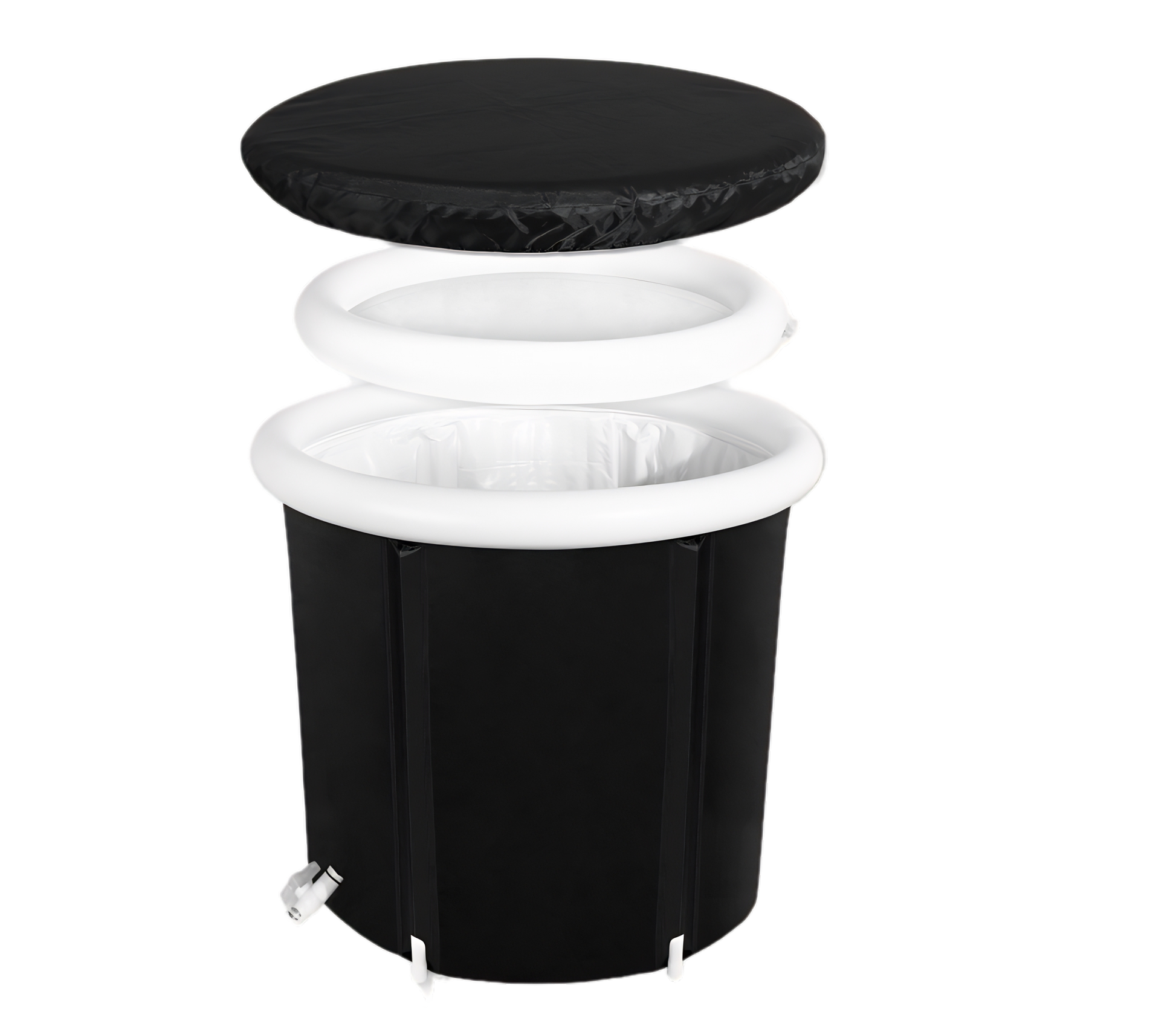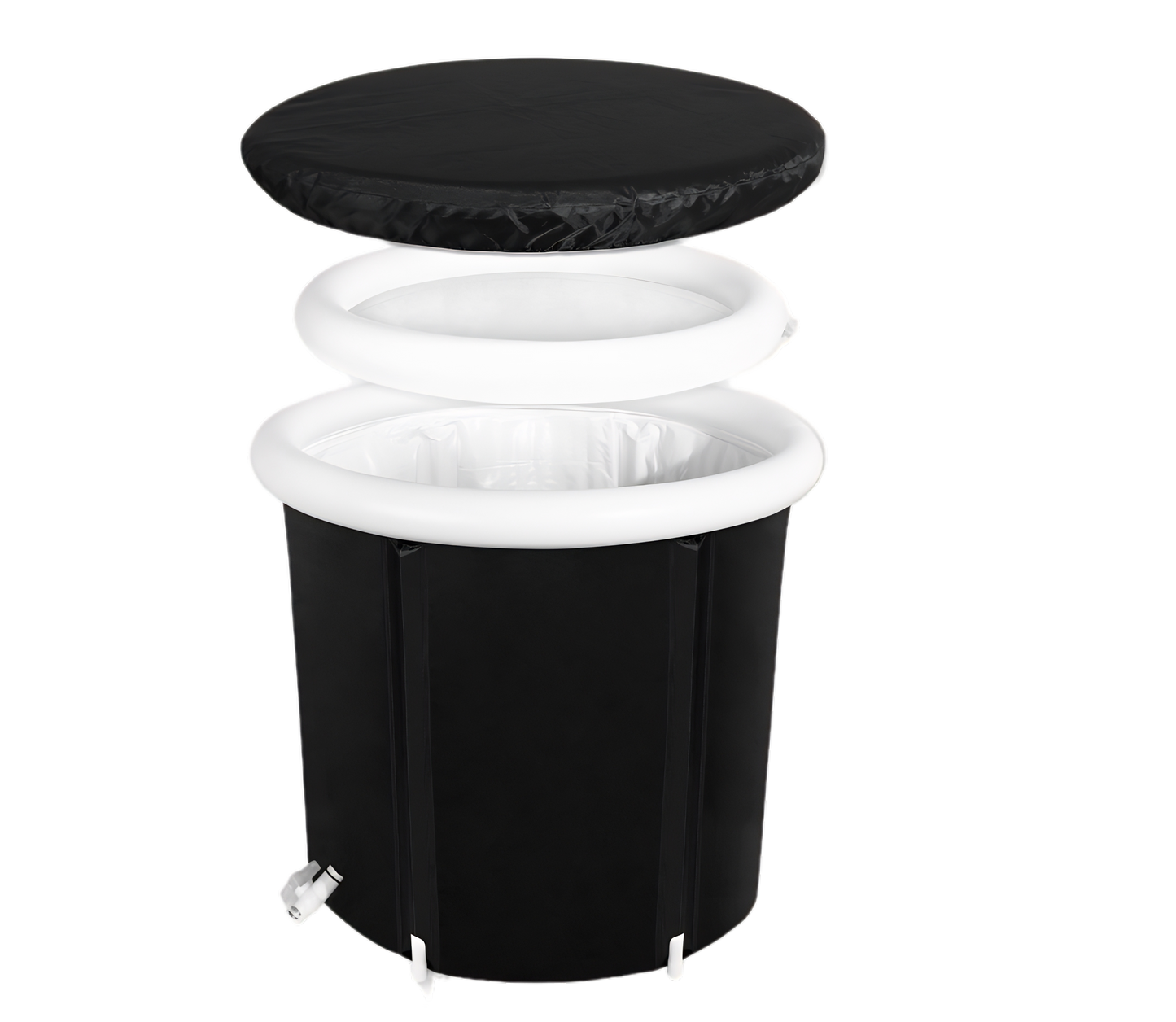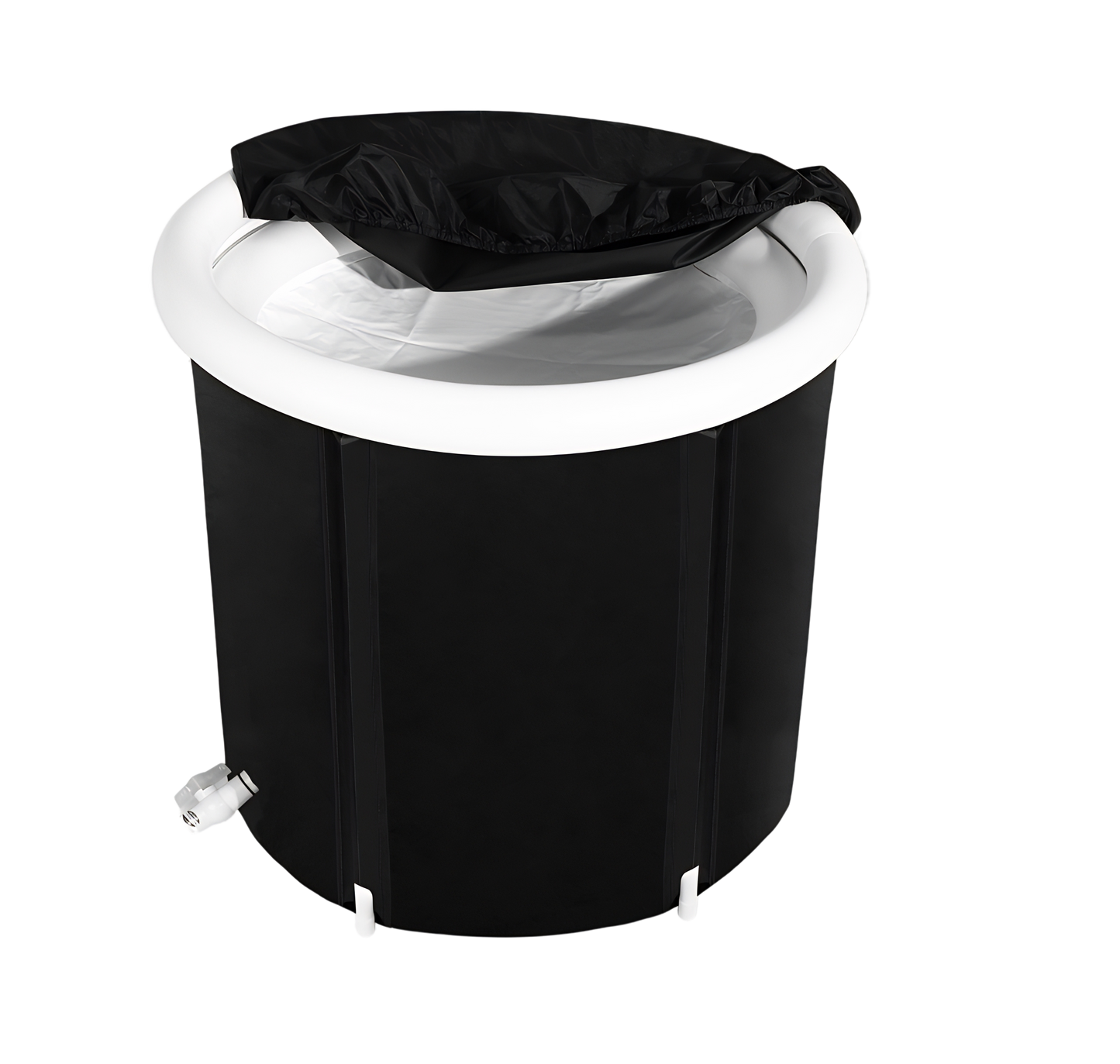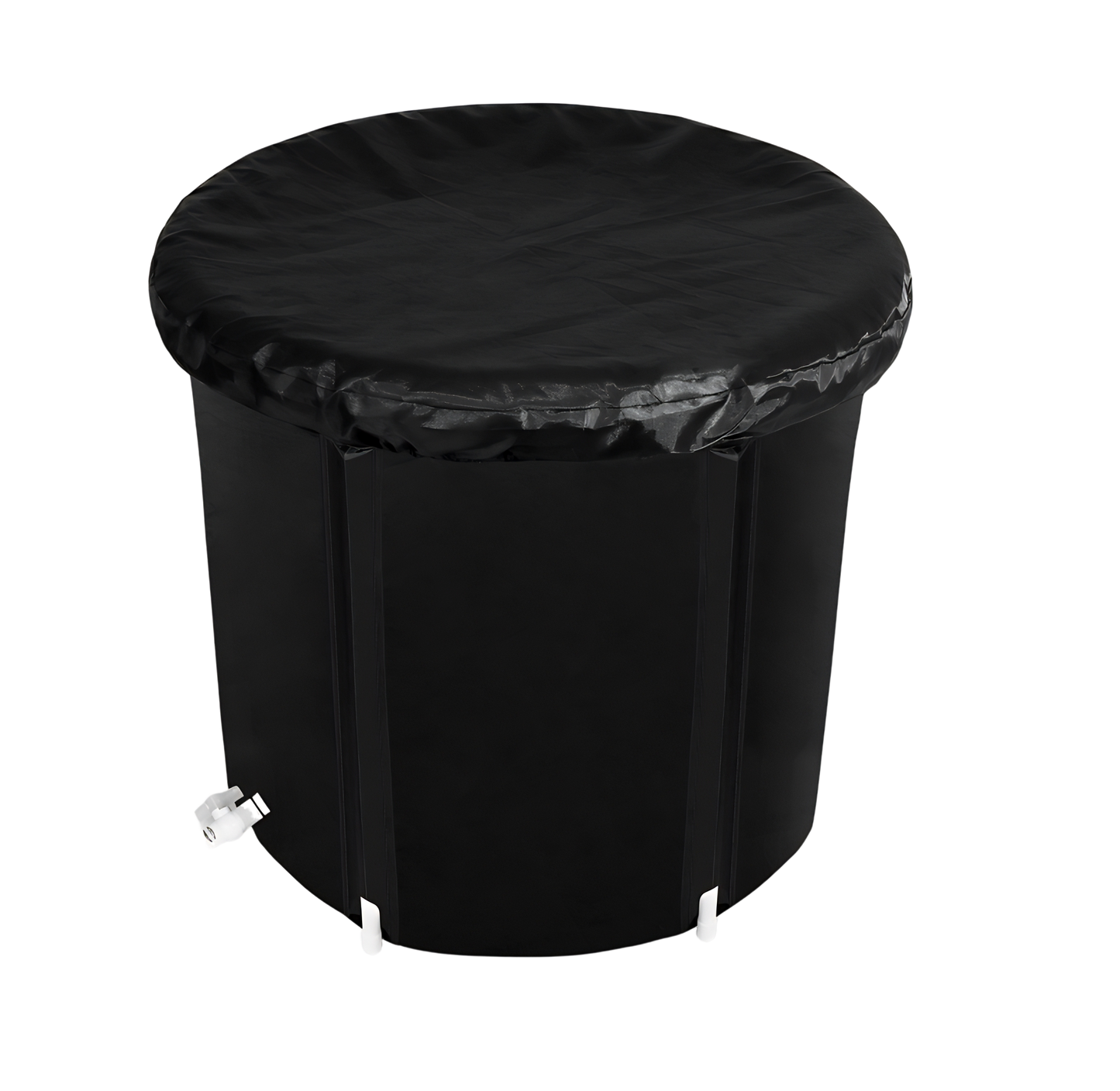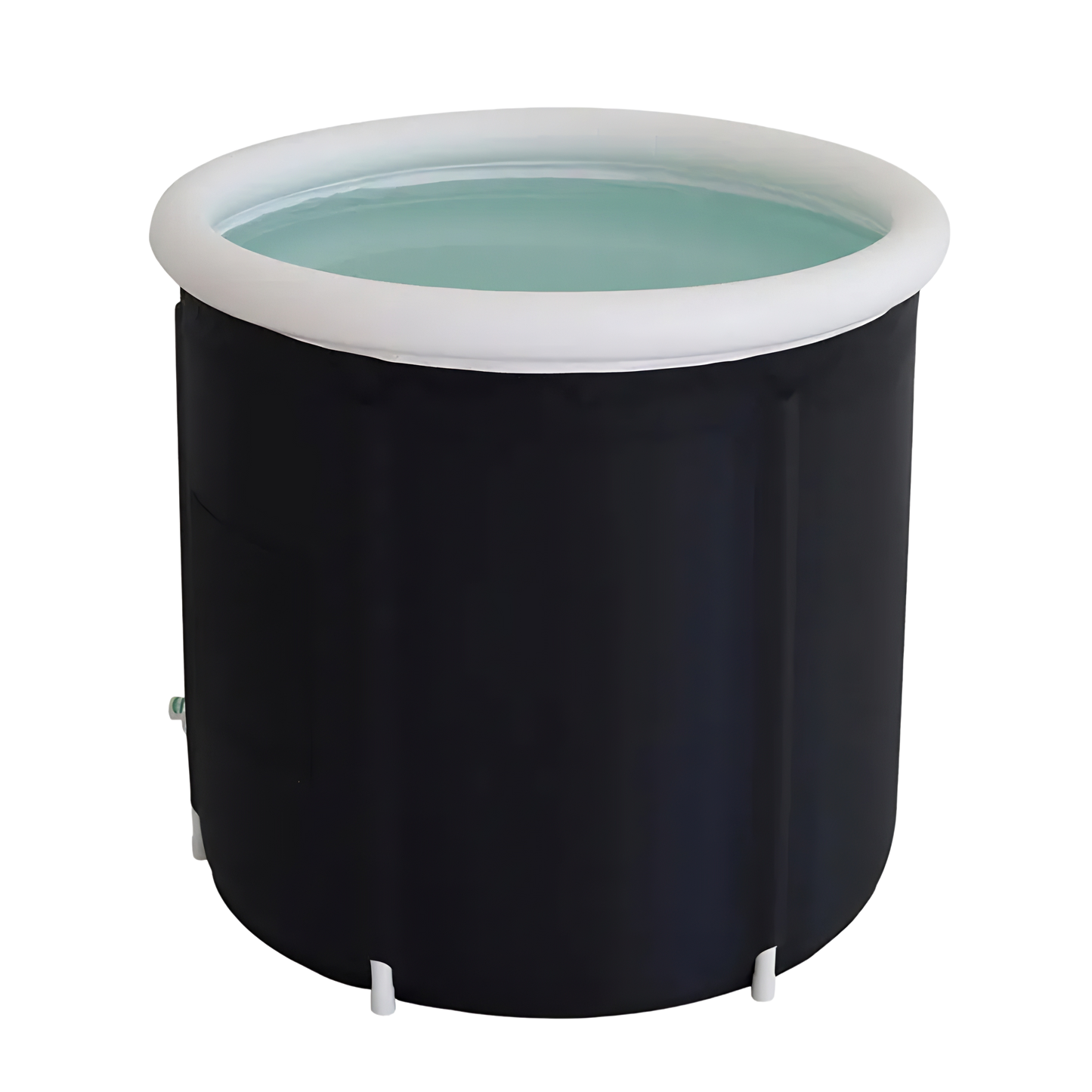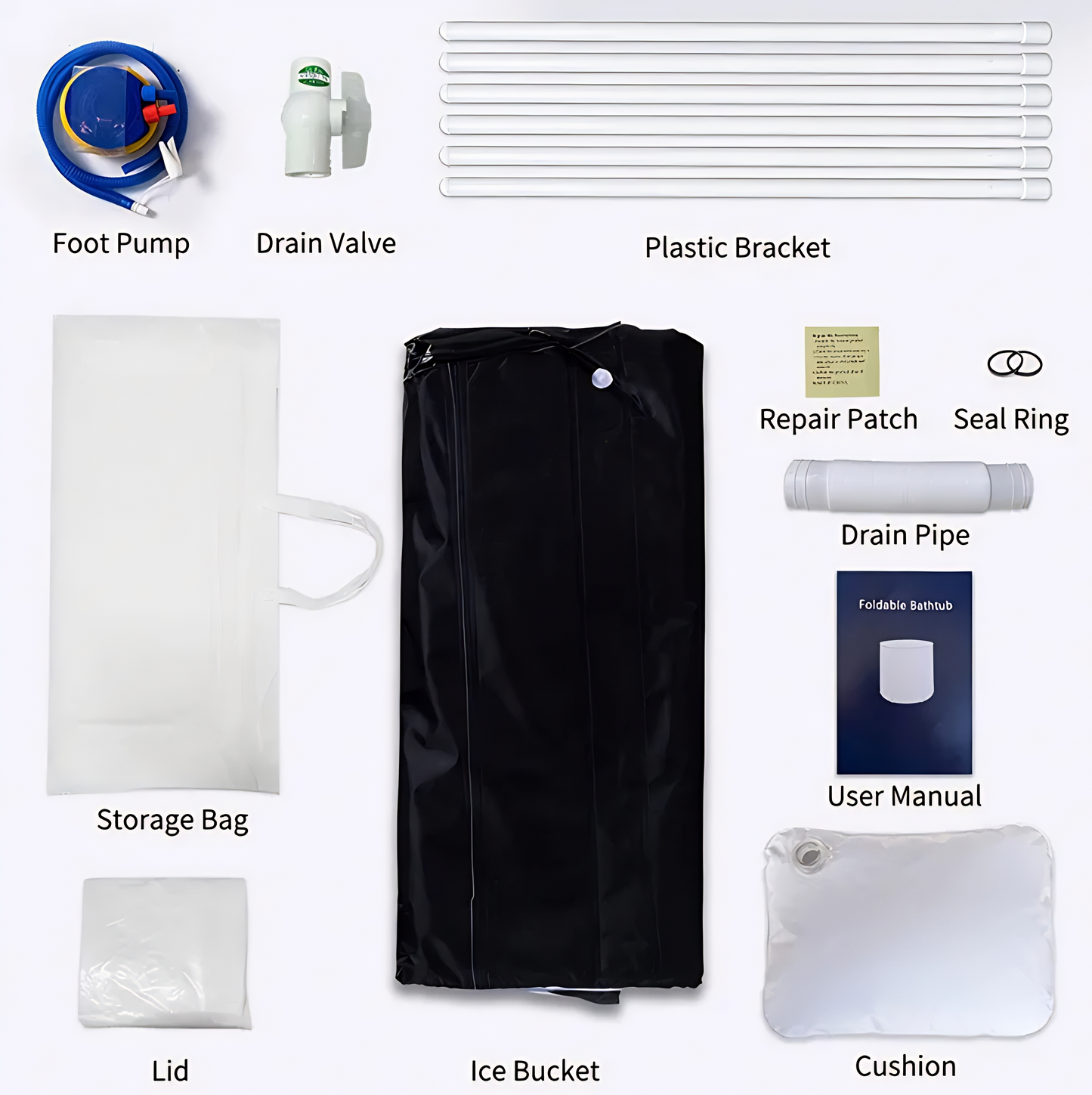Ice bath therapy, also known as cold-water immersion therapy, has gained popularity as a tool for relieving pregnancy-induced muscle soreness and pregnancy swelling. Pregnancy can lead to muscle discomfort and soreness, which can be challenging to manage. Ice bath therapy offers a natural pain relief option for pregnant women, aiding in muscle recovery and promoting overall well-being.
The concept of ice bath therapy involves immersing the body in cold water, typically ranging from 50 to 59 degrees Fahrenheit, for a short period. The cold temperature helps reduce inflammation, numb nerve endings, and constrict blood vessels, leading to decreased muscle soreness and improved muscle recovery.
When performed correctly and with proper precautions in place, ice bath therapy can be a safe and effective method for managing pregnancy-induced muscle soreness. It is essential to consult with a healthcare professional before incorporating ice baths into your routine during pregnancy to ensure it aligns with your individual circumstances.
In addition to ice bath therapy, there are other alternative natural pain relief methods that pregnant women can consider. These may include gentle stretching exercises, prenatal massages, heat therapy, and meditation. Each woman's experience with pregnancy-induced muscle soreness is unique, and exploring various techniques can help find the most suitable approach for managing discomfort.
Key Takeaways:
- Ice bath therapy offers a natural pain relief option for pregnancy-induced muscle soreness.
- Cold-water immersion helps reduce inflammation and promotes muscle recovery during pregnancy.
- Consult with a healthcare professional before incorporating ice bath therapy into your routine during pregnancy.
- Explore other alternative natural pain relief methods in addition to ice baths, such as stretching exercises, prenatal massages, heat therapy, and meditation.
Understanding Ice Bath Therapy within Prenatal Care
Incorporating ice bath therapy into prenatal care can provide numerous benefits for pregnant women. This section explores the science behind ice baths and their role in pregnancy muscle recovery. It also considers the safety considerations of using ice baths during pregnancy and presents alternative natural pain relief methods for pregnant women.
The Science Behind Ice Baths and Pregnancy Muscle Recovery
Ice bath therapy, also known as cold-water immersion, has been found to aid in muscle recovery by reducing inflammation and promoting muscle healing. When the body is exposed to cold temperatures, blood vessels constrict, reducing blood flow to the muscles. This decrease in blood flow helps reduce muscle inflammation and soreness, allowing for faster recovery after exercise or physical exertion.
The cold temperature of the ice bath also triggers the release of endorphins, which are natural pain-relieving hormones. These endorphins can help alleviate muscle soreness and provide a sense of relaxation and well-being for pregnant women.
Furthermore, ice bath therapy stimulates the lymphatic system, which plays a crucial role in maintaining the body's immune function. By enhancing lymphatic drainage, ice baths can help reduce swelling and promote overall health and wellness during pregnancy.
Assessing the Safety: Can Pregnant Women Safely Use Ice Baths?
While ice baths can provide significant benefits for muscle recovery during pregnancy, it is essential to consider safety precautions. Pregnant women should seek medical advice before incorporating ice bath therapy into their routine, especially if they have any underlying health conditions or concerns.
Here are some general safety guidelines to follow when using ice baths during pregnancy:
- Limit the duration of the ice bath to a maximum of 10 minutes.
- Ensure the water temperature is between 50-59 degrees Fahrenheit (10-15 degrees Celsius).
- Monitor the body's response and discontinue the ice bath if any discomfort or adverse effects occur.
- Avoid submerging the head or chest in the ice bath to prevent potential risks.
- Always have a support person nearby to assist pregnant women during the ice bath session.
Natural Pain Relief during Pregnancy: Exploring Alternatives
While ice bath therapy can be an effective natural pain relief method during pregnancy, it may not be suitable for everyone. It is essential to explore alternative methods to alleviate muscle soreness and promote overall well-being. Some alternative natural pain relief techniques that pregnant women can consider alongside or instead of ice bath therapy include:
- Warm compress: Applying a warm compress to the affected muscles can help increase blood flow and reduce muscle tension.
- Gentle stretching exercises: Performing gentle stretching exercises under the guidance of a healthcare professional can help relieve muscle soreness.
- Massage therapy: Seeking professional prenatal massage therapy can provide relief from muscle tension and promote relaxation.
- Hydrotherapy: Taking a warm bath or shower can help relax muscles and reduce discomfort.
- Yoga or meditation: Engaging in gentle yoga or meditation exercises can help alleviate muscle soreness and promote overall well-being during pregnancy.
|
Method |
Description |
|
Warm Compress |
Applying a warm compress to the affected muscles can help increase blood flow and reduce muscle tension. |
|
Gentle Stretching Exercises |
Performing gentle stretching exercises under the guidance of a healthcare professional can help relieve muscle soreness. |
|
Massage Therapy |
Seeking professional prenatal massage therapy can provide relief from muscle tension and promote relaxation. |
|
Hydrotherapy |
Taking a warm bath or shower can help relax muscles and reduce discomfort. |
|
Yoga or Meditation |
Engaging in gentle yoga or meditation exercises can help alleviate muscle soreness and promote overall well-being during pregnancy. |
Ice Bath Therapy: A Tool for Pregnancy-Induced Muscle Soreness
Ice bath therapy can be a beneficial technique for relieving pregnancy-induced muscle soreness and promoting muscle recovery in pregnant women. Cold-water immersion has been shown to have remarkable effects on reducing muscle soreness and aiding in muscle recovery during pregnancy. By understanding the benefits of ice bath therapy, pregnant women can incorporate this technique into their muscle recovery plan to alleviate discomfort and support overall well-being.
The benefits of ice baths for reducing muscle soreness are attributed to the cold temperature, which helps reduce inflammation and constrict blood vessels. This constriction helps to decrease swelling and provides natural pain relief to pregnant women experiencing muscle soreness. Furthermore, cold-water immersion can enhance muscle recovery by reducing muscle fatigue and improving blood circulation.
When incorporating ice bath therapy into a muscle recovery plan, pregnant women should consider a comprehensive approach that combines other techniques tailored to their individual needs. This may include gentle stretching exercises, prenatal massage, and other low-impact exercises suitable for pregnancy. Consulting a healthcare professional or a qualified prenatal fitness specialist can provide personalized guidance on the most effective muscle recovery techniques during pregnancy.
Tips and Best Practices for Ice Baths During Pregnancy
In order to safely and effectively incorporate ice baths into your pregnancy muscle recovery routine, it is important to follow these tips and best practices:
Preparing for an Ice Bath: Equipment and Environment
Before getting into the ice bath, ensure that you have the necessary equipment and create a suitable environment. Here are some key considerations:
- Use a high-quality ice bath tub or a large container that can accommodate your body comfortably.
- Fill the tub with cold water, preferably between 50-60 degrees Fahrenheit, to ensure the water is adequately cool.
- Add ice to the tub to lower the water temperature if needed.
- Choose a quiet and private location where you can relax and fully immerse yourself in the cold water.
Step-by-Step Guide to Cold Water Immersion
Follow these steps to safely and effectively perform an ice bath during pregnancy:
- Begin by gradually immersing your legs into the ice bath, allowing your body to acclimate to the cold water.
- Slowly lower your body into the tub, maintaining a controlled and steady pace.
- Once immersed, focus on deep breathing to help relax your muscles and calm your mind.
- Stay in the ice bath for a recommended duration of 10-15 minutes, monitoring your comfort level throughout.
- After the recommended time, carefully and slowly exit the ice bath, using assistance if needed.
- Pat dry with a towel and change into warm clothing to reduce the shock of transitioning from cold to warm.
Ice Bath Benefits During Pregnancy and Frequency Recommendations
Ice baths offer several benefits for muscle recovery during pregnancy. Incorporating them into your routine can help with:
- Reducing muscle soreness and inflammation
- Enhancing blood circulation and oxygen supply
- Improving recovery time between workouts
- Promoting relaxation and stress relief
For optimal results, it is recommended to consult with a healthcare professional or a qualified trainer to determine the frequency of ice bath therapy based on your individual needs and pregnancy circumstances.
When to Avoid Ice Baths: Contraindications and Precautions
While ice baths can be beneficial, there are certain situations where caution should be exercised or ice baths should be avoided completely. Consider the following contraindications and precautions:
- Avoid ice baths if you have a history of preterm labor or any complications during pregnancy.
- Do not use ice baths if you have a heart condition or circulatory issues.
- If you experience dizziness, shortness of breath, or any abnormal symptoms during an ice bath, immediately exit the tub and seek medical attention.
- If you are unsure about the safety of ice bath therapy during pregnancy, consult with your healthcare provider before proceeding.
By following these tips, understanding proper procedures, and taking necessary precautions, you can safely incorporate ice bath therapy into your pregnancy muscle recovery routine.
Conclusion
In conclusion, ice bath therapy can be a valuable tool for relieving pregnancy-induced muscle soreness and promoting muscle recovery. The cold water immersion technique offers natural pain relief benefits and can be safely used during pregnancy with proper precautions. By incorporating ice baths into their routine, pregnant women can alleviate muscle soreness and support their overall well-being.
Ice bath therapy has been shown to be effective in reducing inflammation and swelling, which are common symptoms of pregnancy-induced muscle soreness. The cold temperature of the water helps to constrict blood vessels and reduce blood flow to the affected muscles, which in turn can alleviate pain and promote faster healing.
However, it is important for pregnant women to follow best practices and guidelines when using ice baths. They should always consult with their healthcare provider before starting any new treatment or therapy. Additionally, pregnant women should limit the duration of their ice baths and avoid using extremely cold water to prevent any potential risks to themselves or their baby.
Overall, ice bath therapy can be a beneficial addition to the muscle recovery techniques for pregnant women. It provides a natural and accessible method of pain relief, allowing pregnant women to manage muscle soreness and discomfort during this transformative time in their lives.
FAQ
Can ice bath therapy help with pregnancy-induced muscle soreness?
Yes, ice bath therapy, also known as cold-water immersion therapy, can be effective in relieving pregnancy-induced muscle soreness.
How does ice bath therapy promote muscle recovery during pregnancy?
Ice baths help reduce inflammation and improve blood flow, promoting muscle recovery in pregnant women.
Is ice bath therapy safe to use during pregnancy?
Ice baths can be safe for pregnant women when proper precautions are followed. It is always best to consult with a healthcare provider before trying ice bath therapy during pregnancy.
Read More in our detailed article: Are Ice Baths Safe When Pregnant?
Are there alternative natural pain relief methods for pregnant women?
Yes, besides ice bath therapy, pregnant women can consider other natural pain relief methods such as prenatal massages, gentle exercises, and heat therapy.
How can ice bath therapy help with pregnancy-induced muscle soreness?
Ice baths can reduce muscle soreness by decreasing inflammation, relieving pain, and promoting muscle recovery in pregnant women.
What should I consider when using ice baths during pregnancy?
When using ice baths during pregnancy, it is important to prepare the environment properly, follow a step-by-step guide for cold water immersion, follow recommended frequency guidelines, and be aware of contraindications and precautions.
What equipment and environment should be prepared for an ice bath during pregnancy?
To prepare for an ice bath during pregnancy, you will need a bathtub or container large enough to immerse your body comfortably. Fill it with cold water and add ice cubes to reach the desired temperature.
What is the proper procedure for getting in and out of an ice bath during pregnancy?
When getting in and out of an ice bath during pregnancy, it is essential to do so slowly and cautiously. Start by immersing your legs, then gradually lower your body into the water. When getting out, reverse the process, slowly raising your body out of the ice bath.
How often should I use ice baths during pregnancy?
The frequency of ice bath use during pregnancy can vary. It is generally recommended to start with shorter durations and lower temperatures and gradually increase as tolerated. Consulting with a healthcare provider can help determine the appropriate frequency for your specific situation.
Read More in our detailed article: How to do Ice Baths When Pregnant.
Are there any situations where ice baths should be avoided during pregnancy?
Yes, ice baths should be avoided if you have any known contraindications, such as certain medical conditions or complications during pregnancy. It is crucial to consult with your healthcare provider to ensure ice bath therapy is safe for you.
Disclaimer
The information provided in this article is for educational and informational purposes only and is not intended as medical or health advice. While we strive to provide accurate and up-to-date information, we are not health professionals. Therefore, any reliance you place on such information is strictly at your own risk.
Pregnancy is a sensitive period, and what might be safe for one individual may not be for another. We strongly recommend consulting with a healthcare provider or medical professional before making any decisions regarding ice baths or any other health-related practices during pregnancy. This article does not substitute for professional medical advice, diagnosis, or treatment.
We do not accept any responsibility for any liability, loss, or risk, personal or otherwise, incurred as a consequence, directly or indirectly, from any information or advice contained here. By reading this article, you acknowledge and agree that neither the author nor the website is liable for any losses or damages that may arise from your choice to use or not use the information provided.

